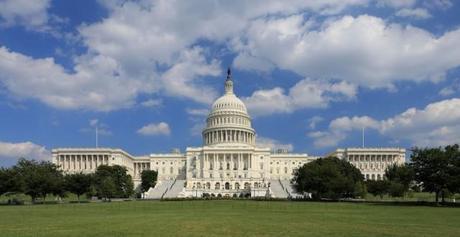
Democracy is about more than just formal institutions. (Photo: Wikimedia Commons)
Narayan Adhikari is a CIPE-Atlas Corps Think Tank LINKS Fellow at the Accountability Lab
Living in the U.S. for the past six months has been a thrilling experience for me. I have lived in a social entrepreneurship-themed group house, traveled to different cities, gone hiking at Sky Meadows Park, attended events/conferences, and made countless friends. I also interacted with local Nepalese communities and enjoyed festivals and happy hours. Although living in Washington DC has proven itself quite expensive compared to Kathmandu, I have been able to live within my means as a fellow. DC is a very lively and cultural city, and I appreciate that there is always so much going on. After living here for six months I am amazed by the many things I haven’t yet discovered.
Working directly with my friends and colleagues at my host organization, Accountability Lab, in DC, and being a part of the OpenGov Hub (OGH) has been remarkable. OGH, a community of independent organizations working the transparency field, is a great place for collaboration, networking, and learning. As a Think Tank LINKS fellow, I have had access to valuable opportunities and space to expand my knowledge. The monthly webinars and meetings with CIPE and Atlas Corps fellows were especially rewarding and really added value to our learning experience.
While it is always hard to focus on one experience when you have so many things to talk about, I am focusing on my experience with democracy. My quest for knowledge about the true meaning of democracy continued until I was not able to find a solid answer within myself. Often, in countries where democracy is in transition or a far off hope, citizens have difficulty understanding it and are often confused about the difference between democracy in theory and democracy in daily living.
My question was very simple: I wanted to see how people from developed nations like the U.S. live their daily lives in a democratic society without being abstract or theoretical. In theory, democracy is about human rights, freedom of information, freedom of association, and the rule of law. Although what it is written in textbooks and literature is true, all of these concepts cannot exist without smaller fundamental elements of society associated with culture, values, and norms at the individual level.
The rule of law cannot be achieved only with strong laws or acts and enforcement; rather it requires changes in attitudes, behaviors and practices. The rule of law exists in American society not only because it has formal systems of law in place, but also because it has built a strong foundation that mibues people with democratic values as they grow up. Of course this society has its problems, but it has multifaceted and innovative ways to solve them. Sometime I compare freedom to vending machines with its variety of choices, opportunities, and challenges.
Democracy is like a tree: it needs time to grow and bear fruit. In my home country, Nepal, we have taken advantage of the rhetoric of democracy without making the effort to put its values into practice. We neither apply its values in action at the personal nor the institutional level. We have been able to import big ideas from western society in the name of democracy, communism, or socialism but we always fail to manifest them in the local context. Underdeveloped nations have a serious lack of accountability on the part of power holders and state institutions. Thus democracy often results in corruption, nepotism, patronage, and poverty.
It’s easy to learn something from the outside but it’s often very hard to put it into practice. To put action behind our words, we need to start with individuals. Democracy begins with changing the mindsets of individual people. It begins with social etiquette and respect. More than just formal processes like elections, parliaments, the formation of new governments and having state organs like legislative, judiciary and executive branches, it requires a sense of morality, a high level of integrity, the accountability of power holders, and trust between citizens.
When we talk about democracy, we often talk about elections, but, in America for example, elections are not only what makes democracy work as evidenced by its relatively low turnout numbers. Communication technology, for example, also plays a vital role in replicating people’s voices. It wasn’t developed overnight and it was the result of a long process, a strong commitment, and a vision.
In a nutshell, I’ve seen the difference between viewing democracy in words and in practice. In practice, it requires a change in behavior and an attitude with a high sense of responsibility and ethics. Being honest and ethical, doing no harm to others, and always showing respect is the cornerstone of a liberal society. To be a democratic citizen, you need to have a sense of duty, to be responsible for your own actions, and to strive to make your society a better place.
CIPE-Atlas Corps Think Tank LINKS Fellowship brings talented young professionals with strong research backgrounds to shadow researchers and experts at leading U.S. think tanks for six months. Narayan Adhikari is part of the Fellowship, serving at the Accountability Lab.

